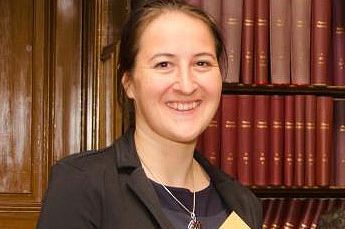
(Vienna, 04 December 2019) The Austrian Science Fund FWF is funding a cancer research group entitled "The tumour microenvironment as a target and regulator of metal anticancer drugs". The inter-university project is being led by Petra Heffeter from MedUni Vienna's Institute of Cancer Research.
The project (FG 3, Board of Trustees session of 25.11.2019) has been allocated total funding of nearly €1.5 million. Others taking part in the project are Walter Berger from MedUni Vienna's Institute of Cancer Research, Evelyn Rampler and Gunda Köllensperger from the University of Vienna's Institute of Analytical Chemistry and Christian Kowol from the University of Vienna's Institute of Inorganic Chemistry.
Project content
Cancer is one of the most serious diseases and is responsible for millions of deaths every year. Currently, drugs containing platinum are used in around one in every two treatment regimens, but severe side-effects and rapid development of resistance continue to be the greatest obstacles to successful treatment.
Solid tumours are a complex tissue, consisting of healthy cells as well as cancer cells. Remarkably, though, relatively little is known about the extent to which the tumour microenvironment influences the effect of platinum therapeutics. However, the latest data show that platinum drugs can attack the tumour microenvironment in a very specific way. Consequently, we will only understand the key elements of treatment response and be able to develop new drugs, if we can decipher the interaction of drugs with the specific properties of the solid tumour as a multi-cellular tissue.
Specifically, the project "The tumour microenvironment as a target and regulator for metal-based anticancer drugs" addresses the following questions: 1) How do metal-based drugs influence the interaction between cancer cells and the non-malignant cells of the tumour tissue? 2) Which types of cell are actually responsible for the activity of tumour-specific (metal-based) drugs? 3) What role do lipid-based messenger substances play here? Based on the acquired knowledge, is it possible to develop new metal-based drugs that specifically attack the tumour tissue and therefore have fewer side effects?
Over the last few years, an interdisciplinary platform has been established in Vienna between researchers from the Institute of Cancer Research of the Medical University of Vienna and the Faculty of Chemistry of the University of Vienna and this is now regarded as the world's leading institution for (metal)-based anticancer drugs. The researchers in this project are either members of the existing platform or have worked closely with it. The approved research group will decipher the complex processes of tumour biology, which determine the activity of metal-based cancer drugs. Based on the acquired knowledge, tumour-specific drugs will be synthesised and new (analytical) tools will be developed for decoding the highly complex cellular interactions in the treatment-response of solid tumours.
About Petra Heffeter
Petra Heffeter it is an extraordinary professor at the Medical University of Vienna’s Institute of Cancer Research. She is also a cancer biologist and toxicologist and gained her postdoctoral qualification in 2015. She was awarded the Otto Kraupp Habilitation Prize for her doctoral thesis in 2016. Her research focuses on the study of mechanisms underlying the resistance and reactivity of cancer cells to treatment. Together with Christian Kowol, Petra Heffeter has won several awards for her innovative projects. Heffeter has authored 115 published manuscripts with approximately 3300 citations (h-Index 32). Since 2013, she has supervised six PhD students and 10 Masters students. She is co-coordinator of the international PhD course in Translational Oncology (IPPTO).
Petra Heffeter on the IKF website: https://krebsforschung.meduniwien.ac.at/forschung-research/research-focuses/applied-and-experimental-oncology/petra-heffeter/